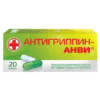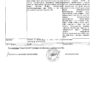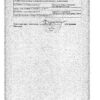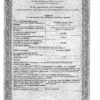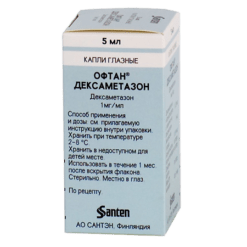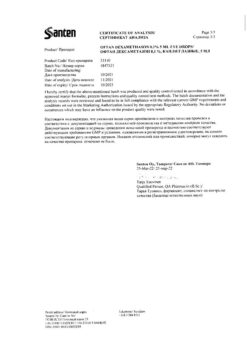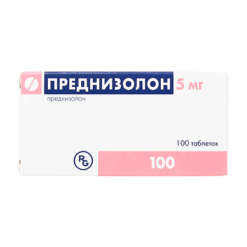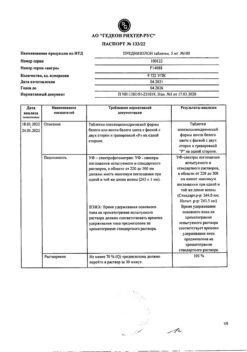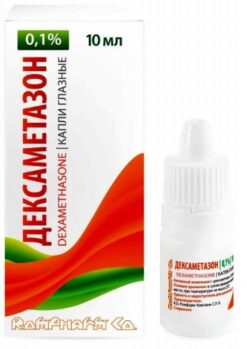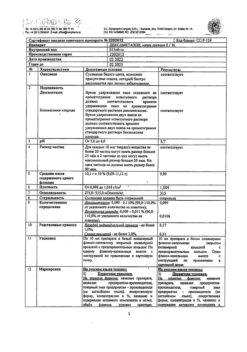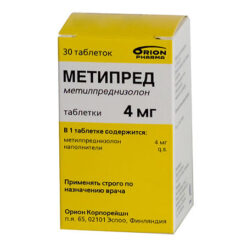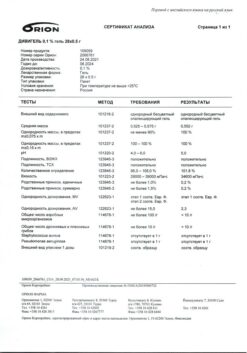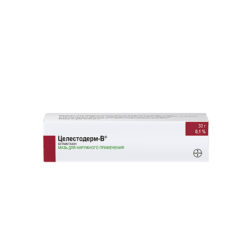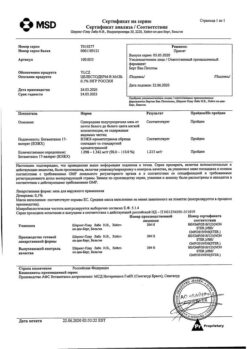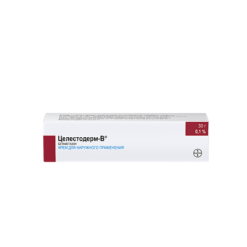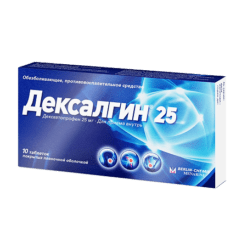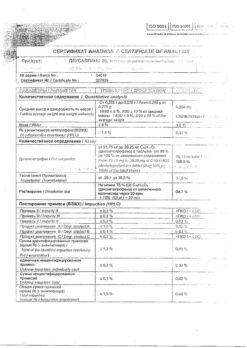No products in the cart.
Antigrippin ANVI, capsules 20 pcs
€5.53 €4.92
Description
Pharmacological action – antipyretic, analgesic, analgesic, antihistamine, angioprotective, antipyretic, anti-inflammatory.
Antigrippin ANVI is a drug of combined composition.
Acetylsalicylic acid is an analgesic, antipyretic and anti-inflammatory agent; inhibits platelet aggregation.
Ascorbic acid plays an important role in the regulation of redox processes, carbohydrate metabolism, blood coagulation, tissue regeneration, helps improve the body’s resistance.
Rutoside (rutin) is an angioprotector. It reduces capillary permeability, reduces swelling and inflammation, strengthens the vascular wall. Inhibits aggregation and increases the degree of deformation of red blood cells.
Sodium metamizole has analgesic, antipyretic and mild anti-inflammatory action, whose mechanism is associated with inhibition of prostaglandin synthesis.
Diphenhydramine has anti-allergic and anti-edema effects. It reduces vascular permeability, eliminates nasal mucous membrane edema and hyperemia, sore throat and manifestations of allergic reactions in the upper respiratory tract.
Calcium gluconate is a regulator of calcium and phosphorus metabolism, it has anti-allergic effect (mechanism is not clear), reduces vascular permeability. In allergic diseases or conditions its combined use with antihistamines is recommended.
Pharmacokinetics
There are no data on the pharmacokinetics of Antigrippin-ANVI.
Indications
Indications
Symptomatic treatment of influenza, ARVI, colds in adults and adolescents over 15 years of age.
Pharmacological effect
Pharmacological effect
Pharmacological action – anti-cold, analgesic, analgesic, antihistamine, angioprotective, antipyretic, anti-inflammatory.
Antigrippin-ANVI is a drug of combined composition.
Acetylsalicylic acid is an analgesic, antipyretic and anti-inflammatory substance; inhibits platelet aggregation.
Ascorbic acid plays an important role in the regulation of redox processes, carbohydrate metabolism, blood clotting, tissue regeneration, and helps increase the body’s resistance.
Rutoside (rutin) is an angioprotector. Reduces capillary permeability, reduces swelling and inflammation, strengthens the vascular wall. Inhibits aggregation and increases the degree of deformation of red blood cells.
Metamizole sodium has an analgesic, antipyretic and weak anti-inflammatory effect, the mechanism of which is associated with inhibition of prostaglandin synthesis.
Diphenhydramine has an antiallergic, anti-edematous effect. Reduces vascular permeability, eliminates swelling and hyperemia of the nasal mucosa, sore throat and allergic reactions in the upper respiratory tract.
Calcium gluconate is a regulator of calcium and phosphorus metabolism, has an antiallergic effect (the mechanism is unclear), and reduces vascular permeability. For allergic diseases or conditions, its combined use with antihistamines is recommended.
Pharmacokinetics
Data on the pharmacokinetics of the drug Antigrippin-ANVI are not provided.
Special instructions
Special instructions
With prolonged use of the drug, it is necessary to monitor the peripheral blood picture and laboratory indicators of the functional state of the liver.
Since acetylsalicylic acid has an antiplatelet effect, the patient, if he is undergoing surgery, must notify the doctor in advance about taking the drug.
Acetylsalicylic acid in low doses reduces the excretion of uric acid, which can in some cases provoke a gout attack.
While using the drug, patients should avoid drinking alcoholic beverages due to the increased risk of gastrointestinal bleeding.
Acetylsalicylic acid has a teratogenic effect: when used in the first trimester of pregnancy, it leads to the development of cleft palate; in the third trimester – to premature closure of the ductus arteriosus in the fetus, which causes hyperplasia of the pulmonary vessels and hypertension in the vessels of the pulmonary circulation, and to inhibition of labor (due to inhibition of prostaglandin synthesis).
Acetylsalicylic acid is excreted in breast milk, which increases the risk of bleeding in the baby due to impaired platelet function.
Due to the stimulating effect of ascorbic acid on the synthesis of corticosteroid hormones, it is necessary to monitor renal function and blood pressure.
Prescribing ascorbic acid to patients with rapidly proliferating and intensively metastasizing tumors can aggravate the process.
Ascorbic acid, as a reducing agent, can distort the results of various laboratory tests (determination of glucose, bilirubin and the activity of “liver” transaminases, LDH in blood plasma).
In patients with bronchial asthma and hay fever, hypersensitivity reactions may develop when taking the drug.
Impact on the ability to drive vehicles and operate machinery
During the period of use of the drug, you should refrain from engaging in potentially hazardous activities that require increased attention and speed of psychomotor reactions.
Active ingredient
Active ingredient
Ascorbic acid, Acetylsalicylic acid, Rutoside, Metamizole sodium, Calcium gluconate, Diphenhydromi
Composition
Composition
1 capsule A contains:
Active substances:
acetylsalicylic acid – 250 mg,
ascorbic acid – 300 mg,
rutoside – 20 mg.
Two types of capsules.
Capsules A, hard gelatin, size No. 0, green; the contents of capsules A are a mixture of crystalline and amorphous powder from light yellow to yellow with a greenish tint, the presence of lumps is allowed (10 pieces in a contour cell package).
1 caps.
acetylsalicylic acid
250 mg
ascorbic acid
300 mg
rutoside (in trihydrate form)
20 mg
Excipients:
calcium stearate – 1 mg,
potato starch – 9 mg.
Composition of hard gelatin capsules:
gelatin – 90.723 mg, azorubine dye (E122) – 0.003 mg, brilliant black dye (E151) – 0.184 mg, proprietary blue dye (E131) or brilliant blue dye (E133) – 0.315 mg, quinoline yellow dye (E104) – 2.207 mg, titanium dioxide (E171) – 2.56 mg.
Capsules B, hard gelatin, size No. 0, white; the contents of capsules B are powder and/or granules of white or white with a yellowish tint, the presence of lumps is allowed (10 pcs. in a contour cell package).
1 caps.
metamizole sodium monohydrate
250 mg
diphenhydramine hydrochloride
20 mg
calcium gluconate monohydrate
100 mg
Excipients:
calcium stearate – 3.8 mg,
potato starch – 6.2 mg.
Composition of hard gelatin capsules:
gelatin – 91.944 mg, titanium dioxide (E171) – 4.055 mg.
Pregnancy
Pregnancy
The drug is contraindicated for use during pregnancy. If it is necessary to prescribe during lactation, breastfeeding should be stopped for the period of use of the drug.
Acetylsalicylic acid has a teratogenic effect: when used in the first trimester of pregnancy, it leads to the development of cleft palate; in the third trimester – to premature closure of the ductus arteriosus in the fetus, which causes hyperplasia of the pulmonary vessels and hypertension in the vessels of the pulmonary circulation, and to inhibition of labor (due to inhibition of prostaglandin synthesis).
Acetylsalicylic acid is excreted in breast milk, which increases the risk of bleeding in the baby due to impaired platelet function.
Use in children
Contraindicated: children and adolescents under 15 years of age. The drug is not prescribed as an antipyretic to children under 15 years of age with acute respiratory viral diseases due to the risk of developing Reye’s syndrome (encephalopathy and acute fatty liver with acute development of liver failure).
Contraindications
Contraindications
Erosive and ulcerative lesions of the gastrointestinal tract (in the acute phase).
Gastrointestinal bleeding.
Increased tendency to bleed.
Bronchial asthma and diseases accompanied by bronchospasm (including “aspirin” asthma).
Inhibition of hematopoiesis (agranulocytosis, neutropenia, leukopenia).
Hemorrhagic diathesis (hemophilia, von Willebrand disease, telangiectasia, hypoprothrombinemia, thrombocytopenia, thrombocytopenic purpura).
Vitamin K deficiency.
Severe liver dysfunction.
Portal hypertension.
Severe renal dysfunction.
Hereditary hemolytic anemia (including those associated with deficiency of glucose-6-phosphate dehydrogenase).
Dissecting aortic aneurysm.
Hypercalcemia (calcium ion concentration should not exceed 12 mg% or 6 mEq/L).
Hypercalciuria.
Nephrolithiasis (calcium).
Sarcoidosis.
Glycoside intoxication (risk of arrhythmia).
Glucose-6-phosphate dehydrogenase deficiency.
Pregnancy.
Lactation (breastfeeding).
Children and adolescence up to 15 years.
Hypersensitivity to the components of the drug.
With caution: the drug is prescribed for hyperuricemia, urate nephrolithiasis, gout, gastric and duodenal ulcers (history), decompensated heart failure.
Side Effects
Side Effects
From the digestive system
Anorexia, nausea, vomiting, gastralgia, diarrhea, erosive and ulcerative lesions of the gastrointestinal tract, gastrointestinal bleeding, liver failure.
From the cardiovascular system
Increased blood pressure, tachycardia.
Allergic reactions
Skin rash, Quincke’s edema, bronchospasm (if there is a tendency to bronchospasm, an attack may be provoked).
Side effects observed with long-term use of the drug (more than 7 days)
From the hematopoietic system: Thrombocytopenia, agranulocytosis, leukopenia.
From the side of the central nervous system: dizziness, headache, visual impairment, tinnitus, deafness.
From the blood coagulation system: Decreased platelet aggregation, hypocoagulation, hemorrhagic syndrome (including nosebleeds, bleeding gums, purpura).
Allergic reactions: Anaphylactic shock, Stevens-Johnson syndrome, toxic epidermal necrolysis (Lyell’s syndrome).
From the urinary system: Kidney damage with papillary necrosis, renal dysfunction, oliguria, anuria, proteinuria, interstitial nephritis, red staining of urine due to the release of a metabolite.
Other: In adolescents – Reye’s syndrome (hyperpyrexia, metabolic acidosis, nervous system and mental disorders, vomiting, liver dysfunction).
The patient should be warned that all side effects, including those not listed above, should be reported to the attending physician and the drug should be stopped.
Interaction
Interaction
The effect of heparin, indirect anticoagulants, reserpine, steroid hormones and hypoglycemic agents is enhanced when used simultaneously with Antigrippin-ANVI.
The effectiveness of spironolactone, furosemide, antihypertensive and uricosuric drugs is reduced when used simultaneously with Antigrippin-ANVI.
Antigrippin-ANVI increases the adverse reactions of GCS, sulfonylurea derivatives, methotrexate, non-narcotic analgesics and NSAIDs.
When using the drug Antigrippin-ANVI simultaneously with barbiturates, antiepileptic drugs, zidovudine, rifampicin and ethanol-containing drugs, the risk of hepatotoxicity increases. These combinations should be avoided.
Ascorbic acid improves the absorption of iron preparations in the intestines.
Tricyclic antidepressants, oral contraceptives and allopurinol disrupt the metabolism of metamizole in the liver and increase its toxicity.
Metamizole sodium enhances the effects of alcohol-containing drinks.
The simultaneous use of metamizole sodium with cyclosporine reduces the level of the latter in the blood plasma.
When used simultaneously with metamizole sodium, thiamazole and melphalan increase the risk of developing leukopenia.
Sedatives and tranquilizers enhance the analgesic effect of metamizole sodium.
Radiocontrast agents, colloidal blood substitutes and penicillin should not be used while using metamizole sodium.
Overdose
Overdose
Overdose symptoms:
nausea, vomiting, stomach pain, sweating, pale skin, tachycardia; with a slight overdose – ringing in the ears;
in case of severe overdose – drowsiness, collapse, convulsions, bronchospasm, difficulty breathing, anuria, bleeding, progressive respiratory paralysis and respiratory acidosis (due to uncoupling of oxidative phosphorylation).
Treatment:
artificial vomiting, gastric lavage, administration of saline laxatives, activated carbon;
with the development of convulsive syndrome – intravenous administration of diazepam and barbiturates;
if necessary, forced diuresis and hemodialysis.
Storage conditions
Storage conditions
In a dry place, protected from light, at a temperature not exceeding 25 °C
Shelf life
Shelf life
2 years
Manufacturer
Manufacturer
Pharmproject, Russia
Additional information
| Shelf life | 2 years |
|---|---|
| Conditions of storage | In a dry, light-protected place at a temperature not exceeding 25 °C |
| Manufacturer | Pharmproject, Russia |
| Medication form | capsules |
| Brand | Pharmproject |
Related products
Buy Antigrippin ANVI, capsules 20 pcs with delivery to USA, UK, Europe and over 120 other countries.





